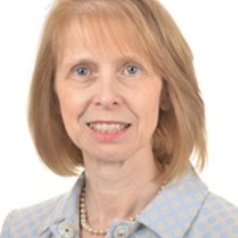
Clare Kelliher
Professor of Work and Organisation, Cranfield University
Professor Clare Kelliher is Professor of Work and Organisation at Cranfield School of Management, Cranfield University. She is a Fellow of the Academy of Social Sciences and holds a PhD in Organisational Behaviour from London Business School. Her research interests focus on the Changing World of Work, specifically the organisation of work and the management of the employment relationship. She has a long-standing interest in and is renowned for her research work on flexible working arrangements. She has recently directed an Economic and Social Research Council funded project designed to examine how the use of the government’s furlough scheme during the pandemic has influenced opportunities for part-time working. Her research has informed the work of government, policy groups and shaped employer practice, including contributions to the Agile Futures Forum, Engage for Success and the Department of Education’s Flexible Working in Schools project. Clare is the author of numerous journal articles, books and book chapters and is a regular speaker at national and international conferences. She is a member of the International Women’s Forum.
Less ![]()
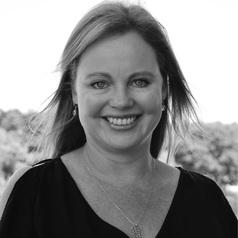
Clare Kelso
Associate Professor, University of Johannesburg
Prof. Clare Kelso is an environmental geographer whose research focuses on climate and environmental history, rural livelihood vulnerability and sustainability. She currently holds the position of associate professor and head of the Department of Geography, Environmental Management and Energy Studies at the University of Johannesburg. She began her career in 1997 as a junior geography lecturer at Vista University, Soweto campus. Prof. Kelso has supervised a number of Masters and PhD students in topics focusing on rural livelihood vulnerability and change, on the interface between conservation and local communities and on the gendered nature of the impacts of climate change in rural communities. Underlying these research focus areas is the central aim to identify sustainable and equitable solutions to complex environmental and social problems. Geographically, the focus of her research has been South Africa, although she has supervised students who have undertaken related research in Tanzania and the Cameroon.
Link to talk on Womanity in Africa
https://womanity.africa/2021/11/17/climate-change-and-gender-with-prof-clare-kelso-university-of-johannesburg/
Less ![]()
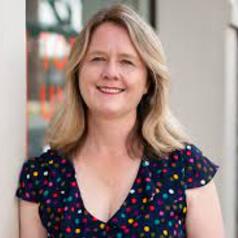
Clare Littleton
Associate Professor and Deputy Director of the Centre for Healthy Sustainable Development, Torrens University Australia
I am Associate Professor at Torrens University Australia and Deputy Director of the Centre for Sustainable Development (Acting).
I conduct research in the area of public health with a specific focus on children, the social and political determinants of health, health equity, education, and public policy. My research focusses on addressing complex policy issues through cross disciplinary research, specifically public health and political science. Through my research I aim to bring about social change, address equity issues, and contribute to addressing the UN sustainable development goals.
I teach across a range of different topics in the Master of Public Health (MPH) at Torrens University including the social and political determinants of health, health policy and advocacy, qualitative research methods, and Capstone research projects. I am currently subject lead for the Health Policy and Advocacy Course in the MPH. I am also involved in curriculum development and most recently wrote the new Health Policy and Advocacy topic.
Less ![]()
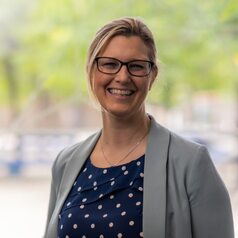
Clare MacMahon
Associate Professor in Motor Learning and Skilled Performance, La Trobe University
Clare MacMahon completed an Undergraduate degree in Psychology from McGill University, a Masters in Human Kinetics from the University of Ottawa, and a PhD in Human Biodynamics from McMaster University. After completing a Postdoctoral Research position funded by the Canadian Social Sciences and Humanities Research Council at Florida State University in Cognitive Psychology, Clare moved to Australia to work within Sport and Exercise Science at Victoria University, Swinburne University, and currently at La Trobe University. She has worked in the research and application of skill acquisition and talent identification principles within Defense contexts, and professional sports such as Australian Rules football, Cricket, and Tennis.
Less ![]()
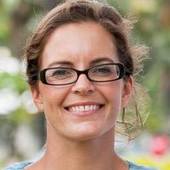
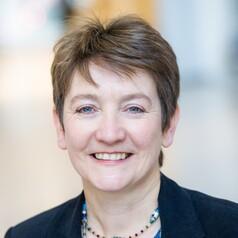
Clare Mumford
Research Associate, University of Central Lancashire
Clare has worked on a number of qualitative research projects relating to work and employment. Her research interests lie broadly in organisation studies with two particular strands of focus: one encompassing concepts of care in work and employment, and the other exploring the role of silence, absence and inaction in organising processes.
Less ![]()
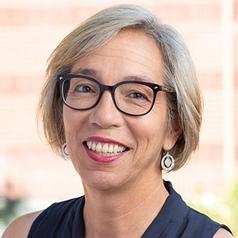
Clare Pastore
Professor of the Practice of Law, University of Southern California
Clare Pastore is an expert on poverty, civil rights, access to justice, and lawyers' professional responsibility. She teaches numerous classes related to her long practice experience in anti-poverty and civil rights organizations, while continuing to practice as a leading member of the California public interest community. She is co-author of the leading Poverty Law textbook and is a regular speaker on poverty, access to justice, and public interest law.
Pastore has received frequent state and national recognition as an outstanding advocate and teacher. In 2020, she won USC Gould School of Law’s Rutter Award for Distinguished Teaching. In 2019, she was honored with the Earl Johnson Equal Justice Award by the Western Center on Law and Poverty for her achievements and leadership in access to justice throughout her career. In 2013, she was one of ten educators nationwide to receive the Elizabeth Hurlock Beckman Award, which recognizes educators “who have inspired their former students to make a significant contribution to society.” In prior years, she was selected as a Wasserstein Fellow by Harvard Law School as part of its program recognizing outstanding public interest lawyers (2005), named one of the nation’s 45 most outstanding public interest attorneys under age 45 (American Lawyer magazine, 1997), one of California’s top lawyers under 40 years old (California Law Business, 1999), and one of Southern California’s “Super Lawyers” (2006-09). She was commended by an official State Assembly resolution in 2004 for her work on behalf of the poor in California.
Pastore serves on the California Advisory Committee to the U.S. Civil Rights Commission and the Steering Committee of the National Coalition for a Civil Right to Counsel. She is a member of USC’s Center for the Changing Family and the Los Angeles County Bar’s Amicus Briefs and Professional Responsibility & Ethics committees. She is a past member of the American Bar Association’s Homelessness and Poverty Commission, a former co-chair of the California Access to Justice Commission’s Right to Counsel Task Force, and a former longtime board member of the Wage Justice Center.
Pastore served for 15 years as a staff attorney at the Western Center on Law and Poverty, where she litigated many state and federal class action cases involving poverty law and disability rights. She received one of the nation’s first Skadden Fellowships to begin her work there in 1989. She was also affiliated with the ACLU of Southern California as Senior Counsel from 2004 til 2007, and Of Counsel from 2007 until 2011.
Pastore holds a BA (Phi Beta Kappa) from Colgate University and a JD from Yale Law School, where she was a senior editor of the Yale Law Journal. She clerked for Judge Marilyn Hall Patel, U.S. District Court for the Northern District of California. Prior to law school, she was a Fulbright-sponsored teaching assistant in a Paris public school.
Less ![]()
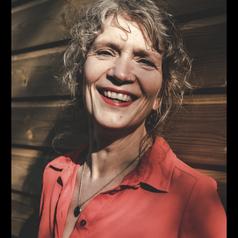
Clare Pettinger
Associate Professor, Public Health Dietetics, University of Plymouth
Clare Pettinger is an award winning Registered Dietitian, Public Health Nutritionist and experienced educator, who is actively engaged in community-focussed research around food systems, poverty and social justice.
She is passionate about radical creative approaches to tackle local (and global) health, (in)equality and social well-being challenges.
Less ![]()
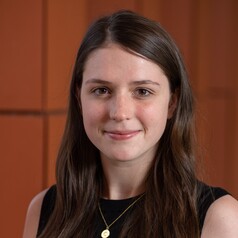
Clare Snyder
PhD Candidate in Business Administration, University of Michigan
I am a final-year PhD candidate in the Technology & Operations department at the University of Michigan Stephen M. Ross School of Business. I am broadly interested in the way people learn about and use new technologies. Primarily, I study worker-algorithm interactions within service contexts, to understand the surprising ways that human behavior can interfere with our goals for these algorithms, and the downstream effects this can have for customers.
Less ![]()
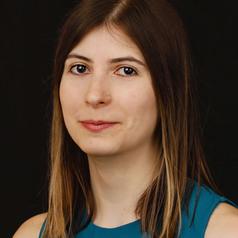
Clare Sutherland
Senior lecturer, University of Aberdeen
I am an experimental psychologist who is interested in how we perceive, recognise, and form impressions about faces.
Less ![]()

Clare Walsh
Lecturer in Psychology, University of Plymouth
Clare Walsh is a Lecturer in Psychology at the University of Plymouth. Her main interests are in understanding how people imagine alternatives to reality, a skill which is known as Counterfactual Thinking. She studies how these thoughts impact emotions, where we attribute cause and blame and even how we tell lies.
Less ![]()
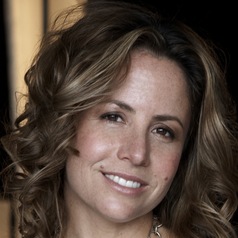
Clare Wright
Associate Professor in History, La Trobe University
Dr Clare Wright is an award-winning historian, author and broadcaster who has worked in politics, academia and the media. She is the author of Beyond the Ladies Lounge: Australia's Female Publicans (MUP 2003, Text 2014) and The Forgotten Rebels of Eureka (Text 2013), which won the 2014 Stella Prize and the NIB Literary Prize and was short-listed for the Prime Minister's, Queensland, NSW and WA Literary Awards, and long-listed for a Walkley. Clare researched, wrote and presented the acclaimed ABC1 documentary Utopia Girls and devised and co-wrote the ABC documentary series, The War That Changed Us.
Less ![]()
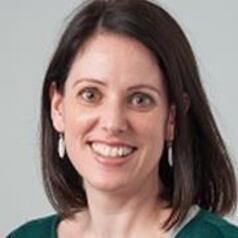
Clare-Ann Fortune
Senior Lecturer in Clinical Forensic Psychology, Te Herenga Waka — Victoria University of Wellington
I undertook my PhD and clinical psychology training (PGDipClinPsy) at the University of Auckland. I worked clinically in child and adolescent mental health including for a specialist youth forensic service before joining Te Herenga Waka Victoria University of Wellington. I currently teach at undergraduate and postgraduate level and am Director of the Forensic psychology programme in the School of Psychology. My key areas of research interest include risk assessment, offender rehabilitation and ethical issues associated with young people’s interactions with the justice system.
Less ![]()
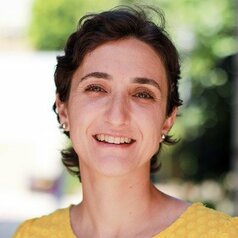
Clarice D. Aiello
Quantum Biology Tech (QuBiT) Lab, Assistant Professor of Electrical and Computer Engineering, University of California, Los Angeles
Clarice D. Aiello is a quantum engineer interested in how quantum physics informs biology at the nanoscale. She is an expert on nanosensors harnessing room-temperature quantum effects in noisy environments.
Experiments suggest that nontrivial quantum mechanical effects involving spin might underlie biosensing phenomena as varied as magnetic field detection for animal navigation, metabolic regulation in cells and optimal electron transport in chiral biomolecules.
Can spin physics be established – or refuted! – to account for physiologically relevant biosensing, and be manipulated to technological and therapeutic advantage? This is the broad, exciting question that the Quantum Biology Tech (QuBiT) Lab wishes to address.
Less ![]()

Clarissa Giebel
Senior Research Fellow in the Institute of Population Health, NIHR Applied Research Collaboration North West Coast, University of Liverpool
My research focuses on Inequalities in Dementia and ageing in the UK, across Europe, in Australia, and in lower and middle-income countries. Patient, public, and stakeholder involvement is at the core of all my work, to shape, conduct, and disseminate research with the expertise of people with lived, care professional, and third sector experiences. My research group at the University of Liverpool works with the public to co-produce solutions to inequities in dementia diagnosis and care.
Less ![]()
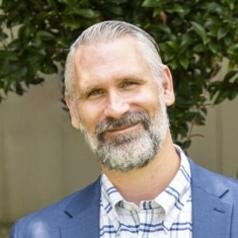
Clark Danderson
Assistant Professor of Hospitality Management and Director of Brewing Science and Operations, Auburn University
Clark A. Danderson, PhD, received his B.S. in Plant Biology from the University of New Hampshire and his M.S. and PhD in Plant Biology from the University of Illinois. His previous research focused on plant-insect interactions and the evolutionary relationships of species in the carrot plant family. Most recently, Danderson graduated from the Graduate Certificate Program in Brewing Science and Operations here at Auburn. Prior to joining the Horst Schulze School of Hospitality Management at Auburn in 2021, Danderson was a lecturer and coordinator of the Food, Wine, and Beer Fermentation Program in the Department of Biology and Environmental Science at Auburn University at Montgomery. As coordinator, he developed courses related to food and beverage fermentation and built a ½ BBL brewing lab on campus. Recently, Danderson has broadened the scope of his research to include topics in brewing science. In particular, he is interested in the microbial diversity and ecology of mixed culture fermentations and the evolution of unique farmhouse strains of yeast. Danderson is an avid homebrewer, active in the local homebrew clubs, and sits on the Governing Committee for Free the Hops, the consumer arm of the Alabama Brewers Guild. Danderson is responsible for the day-to-day operations of the program, oversees the practicum and non-thesis research experiences (HOSP 7910 and HOSP 7980, respectively), and teaches both undergraduate and graduate courses within and outside the program.
Less ![]()
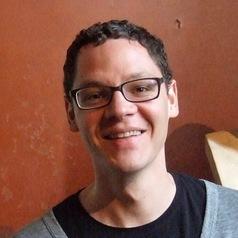
Clas Weber
Senior lecturer, The University of Western Australia
Clas Weber is a Senior Lecturer in Philosophy at the University of Western Australia. He currently holds a 3-year fellowship for Early Career Researcher (DECRA) from the Australian Research Council. He works in the philosophy of language, philosophy of mind, and metaphysics.
Less ![]()
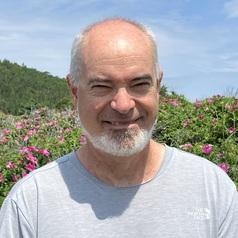
Claude Lavoie
Professeur titulaire, écologie des espèces envahissantes, Université Laval
Je dirige depuis 1996, à l'École supérieure d'aménagement du territoire et de développement régional de l'Université Laval, un laboratoire qui consacre ses recherches à l’étude de la dissémination et de l’impact des plantes envahissantes, ainsi que des moyens de lutte écoresponsables contre les envahisseurs les plus nuisibles. Mes travaux les plus récents portent sur les envahisseurs des milieux riverains et lacustres. Je suis l’auteur de 50 plantes envahissantes : protéger la nature et l’agriculture (Les Publications du Québec, 2019), de 40 autres plantes envahissantes : protéger la nature aujourd’hui et demain (Les Publications du Québec, 2022) et de Pissenlit contre pelouse : une histoire d'amour, de haine et de tondeuse (Éditions MultiMondes, 2024).
Less ![]()
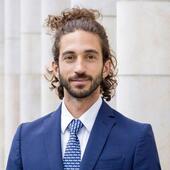
Claude Raisaro
Assistant Professor, International Economics, Graduate Institute – Institut de hautes études internationales et du développement (IHEID)
Less ![]()
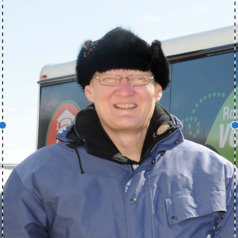
Claude Villeneuve
Professeur titulaire Chaire en éco-conseil spécialiste des changements climatiques, Université du Québec à Chicoutimi (UQAC)
Claude Villeneuve est biologiste. Depuis plus de 45 ans, il partage sa carrière entre l'enseignement supérieur, la recherche et les travaux de terrain en sciences de l'environnement. Il est actuellement professeur titulaire au département des sciences fondamentales de l’UQAC et dirige la Chaire en éco-conseil et l’infrastructure de recherche « Carbone boréal ».
Il a publié treize livres dont cinq sur les changements climatiques. Il a aussi développé avec son équipe une série d’outils pour l’analyse systémique de durabilité dont la Grille d’analyse de développement durable reconnue par les Nations Unies en 2017.
Conférencier recherché il est reconnu pour ses qualités de vulgarisateur scientifique. Il a reçu tout au long de sa carrière de nombreux prix et reconnaissances.
Less ![]()
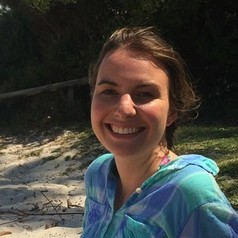
Claudia Benham
ARC DECRA Senior Research Fellow, School of the Environment, The University of Queensland
Claudia is an environmental social scientist at the University of Queensland, specialising in environmental governance and its applications in coastal and marine social-ecological systems. Her current research uses both quantitative and qualitative methods to examine the relationships between environmental change, resource development, human wellbeing and governance. Claudia’s work includes a key emphasis on the processes and outcomes of environmental governance, including deliberative and community-based approaches, with the goal of improving outcomes for people and the environment. Before joining UQ in June 2020, Claudia was a Lecturer in Environmental Management at James Cook University, Townsville, and a Policy Officer in the Australian Government Department of Environment. She has an interdisciplinary background in the social and ecological sciences, and works with natural and social scientists, as well as government and non-government organisations. She is currently working on projects in northern Australia and the Asia-Pacific.
Less ![]()
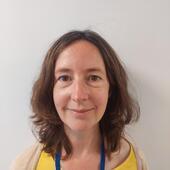
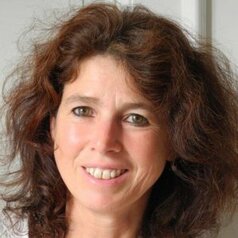
Claudia Hanson
Senior Lecturer, Karolinska Institutet
As a mother, researcher and clinician I'm dedicated to improving maternal and newborn health in low-resource settings. Having worked, lived and done research for over six years in Sub-Saharan Africa, I understood that weak health system are the main reasons why many potentially effective and cheap evidence-based interventions as well as new innovations do not have the impact they should have. Without addressing the key bottlenecks in service provision, the high burden of mortality in pregnancy and around birth will not reduce: Year for year more than 300,000 mothers die together with 2 million babies born dead (stillbirths) and 2 million newborns.
I'm an Associate Professor at KI as well as at London School of Hygiene and Tropical Medicine, London, UK https://www.lshtm.ac.uk/aboutus/people/hanson.claudia.
My research centers much on finding a better balance between accessibility and quality of maternal newborn care and how to improve service provision.
Research description
I’m leading research to evaluate various strategies to improve the quality of care in facilities for maternal and newborn health.
ALERT (Action Leveraging Evidence to reduce perinatal Mortality and morbidity in Sub-Saharan Africa) https://alert.ki.se/
QUALI-DEC (Appropriate use of Caesarean section through QUALIty DECision-making by women and providers) https://www.ceped.org/fr/Projets/Projets-Axe-1/article/quali-dec
I also work on better metrics and indicators for maternal and newborn health and I am part of an advisory board to WHO https://www.who.int/data/maternal-newborn-child-adolescent/monitor
Together with SHIFO, a Swedish NGO, https://shifo.org/en/about/organisation/en/ we are evaluating an innovative scanning system to process health information in Tanzania.
I am the scientific coordinator for the
Sweden – Tanzania PhD training program in reproductive health &
Sweden – Uganda PhD training program in maternal and child health,
both sponsored by Sida and running 2015-2022
My main country focus is East Africa (Tanzania, Uganda, Malawi) and I also work in India, Laos and Benin.
Teaching portfolio
I lead several courses and have a wide teaching portefolio:
“Maternal and Child Health” module of the MSc in Global Health – ongoing (3GB013, 3 credits, 2 weeks) http://ki.se/en/utbildning/3gb12-masters-programme-in-global-health
“Health Planning” module of the MSc in Health Economics, Policy and Management, (2.5 credits, 1,5 weeks ) http://ki.se/en/utbildning/4fh11-masters-programme-in-public-health-sciences
“Research management” of the Master’s in Public Health Sciences (3 credits, 2 weeks) https://education.ki.se/programme-syllabus/4FH19?_ga=2.30109887.1693662900.1589707775-624396290.1561457590
I lead two PhD courses, the “Global Health and Global Burden of Disease” and the “Health Policy and Management” course
I’m responsible for the Doctoral Programme in Biology of Infections and Global Health (BIGH) and support the internationalisation at KI
Internationalisation in education
I’m responsible for the internationalization of the second cycle education in our department. This includes the administration of the SIDA funded MFS grants https://ki.se/gph/minor-field-studies-mfs
I am engaged into the MSc module “Epidemiology and Control of Infectious Diseases in Developing Countries” - https://www.lshtm.ac.uk/study/masters/dmsid.html – at London School of Hygiene and Tropical Medicine.
I teach in Germany and the UK if invited, e.g. on the course on health system of the MSc Global Health Risk Management at the University in Bonn, Germany and the MOOC courses at LSHTM, e.g. the COVID course https://www.lshtm.ac.uk/study/courses/short-courses/free-online-courses/mooc
Education
MD, Dr.med, MSc, MSc, PhD
PhD “Epidemiology of maternal mortality in Tanzania” http://researchonline.lshtm.ac.uk/1012993/1/Thesis%20Claudia%20Hanson%20final%2024April2013.pdf
Dr.med. “Quality of family planning services in Cameroon” http://geb.uni-giessen.de/geb/volltexte/1999/80/pdf/HungerClaudia-1999-04-19.pdf
Specialisation in Gynecology and Obstetrics
MSc International Health (TropEd) from Charité, Berlin, Germany
MSc in Epidemiology from LSHTM, UK.
Fellow of the Higher Education Academy, UK
Less ![]()
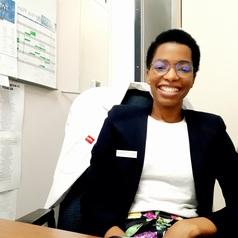
Claudia Ntsapi
Lecturer, University of the Free State
2009-2011
Stellenbosch University: Bachelor of Science in Molecular Biology and Biotechnology
2012
Stellenbosch University: Bachelor of Medical Sciences (Honours)
2013-2015
Stellenbosch University and Brain and Spine Institute (Institut du Cerveau) L'Institut du Cerveau et de la Moelle Epinière, France:
Master of Science in Human Genetics
2015-2018
Stellenbosch University: Doctor of Philosophy in Neuro-physiological Sciences
Membership in the following organizations:
2015 – 2022 Physiological Society of Southern Africa (PSSA)
2017 – 2022 South African Women in Science and Engineering (SAWISE)
2017 – 2022 Southern African Neuroscience Society (SANS)
2017 - 2022 African Association of Physiological Sciences (AAPS)
Less ![]()
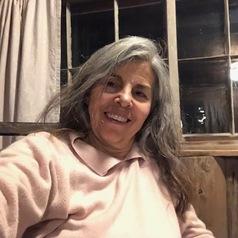
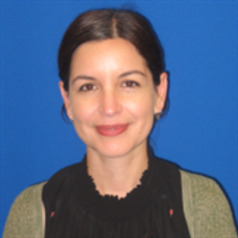
Claudia Rozas
Lecturer, Faculty of Education and Social Work, University of Auckland, Waipapa Taumata Rau
I am interested in sociological and philosophical approaches to schooling and education and how these disciplines might help us to make education good and right. I have a particular interest in secondary English curriculum and its relationship to social equity and educated ideals. I am also interested in education policy and in the relationships between policy and practice, with a focus on teacher subjectivity.
Less ![]()
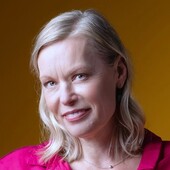
Claudia Sandberg
Senior Lecturer, Technology in Culture and Society, The University of Melbourne
Less ![]()
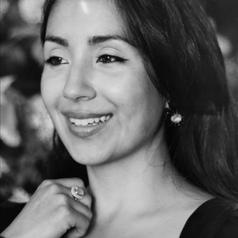
Claudia Milena Adler
Lecturer in Humanitarianism and Deputy programme director of MSc in International Humanitarian Affairs, University of York
Claudia is a lecturer in International Humanitarian Affairs at the University of York. Her research critically examines learning approaches that empower girls and women from marginalised and rural backgrounds in South Asia, Sub-Saharan Africa, the Middle East, and Latin America. Currently, Claudia is engaging with ancient wisdom from the Global South to learn solutions to modern challenges, including climate change. Her work focuses on raising awareness of the implications for health and wellbeing within the context of disasters, conflict, and uneven development.
Less ![]()
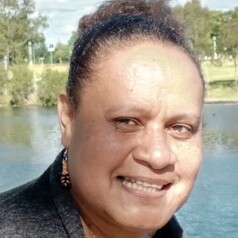
Claudina Habru
Research associate, University of Adelaide
Claudina Habru is a Research Associate in the Department of Politics and International Relations at the University of Adelaide. Before moving to Australia, Claudina was a lawyer in the Solomon Islands and later manages her family’s business.
Less ![]()
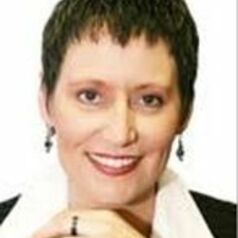
Claudine Storbeck
Professor and Founder of the Wits Centre for Deaf Studies, University of the Witwatersrand
Prof Claudine Storbeck is the Director & Founder of the Centre for Deaf Studies at The University of the Witwatersrand. She started the first professional teacher training programme for Teachers of the Deaf in South Africa, and the Centre currently offers both undergraduate and postgraduate training specialization for teachers of the Deaf focusing on among other things Deaf Pedagogy, Literacy, SASL, Deaf Culture and Literature.
Claudine founded the 1st home-based family-centred early intervention programme for families of deaf and hard of hearing infants in South Africa and the rest of the continent, and recently played a central part in the launch and roll out of the first National Universal Newborn Hearing Screening Progamme in South Africa.
The World Federation of the Deaf named her a world specialist in Deaf Education and as a fluent user of SASL (who interpreted at the inauguration for both Pres Mandela and Pres Mbeki) she has been part of the evaluation panel for International Sign Language Interpreters for the WFD.
The Centre for Deaf Studies has been named a Centre of Excellence by the Dept of Higher Education, and in 2023 it will celebrate its 25th Anniversary.
Less ![]()
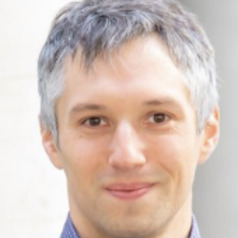
Claudio Feliciani
Project Associate Professor, Department of Aeronautics and Astronautics, School of Engineering, University of Tokyo
Claudio Feliciani is a Project Associate Professor at The University of Tokyo, Japan. His research focuses on pedestrian traffic and crowd management, employing a strong interdisciplinary approach. He has developed methods to assess pedestrian traffic, created simulation models, and analyzed past crowd accidents, including the way they are depicted in the media.
Less ![]()
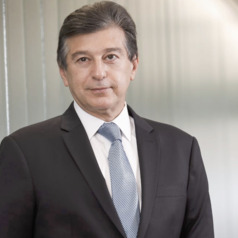
Claudio Lottenberg
Doutor em Oftalmologia, professor e Presidente do Conselho da Sociedade Beneficente Israelita Brasileira Albert Einstein, Faculdade Israelita de Ciências da Saúde Albert Einstein
PhD in Ophthalmology, Professor and Chairman of the Board of the Albert Einstein Brazilian Israelite Beneficent Society, Albert Einstein Israelite Faculty of Health Sciences
Less ![]()
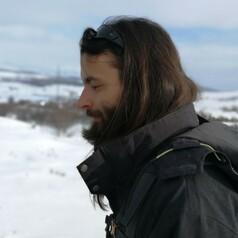
Claudio Mura
PhD student in Forest Ecophysiology, Université du Québec à Chicoutimi (UQAC)
EN: I graduated with the highest score from a MSc program in Forest Science at the University of Padua, Italy. I carried out the research for my MSc thesis in Norway and followed up with a publication in a peer-reviewed journal. I am now enrolled as a PhD student in Environmental Sciences at the University of Québec at Chicoutimi, working primarily on the physiology of frost resistance in trees and its ecological implications in climate change scenario.
FR: J'ai fait mes études en sciences forestières à l'Université de Padoue, en Italie. J'ai effectué la recherche pour ma thèse de maîtrise en Norvège, un étude que j'ai ensuite publié dans une revue scientifique à comité de lecture. Je suis maintenant inscrit comme étudiant au doctorat en sciences de l'environnement à l'Université du Québec à Chicoutimi, travaillant principalement sur la physiologie de la dormance et de la résistance au gel chez les arbres et les implications écologiques dans les scénarios de changement climatique.
Less ![]()
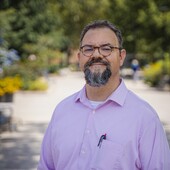
Claudio N. Verani
Professor of Chemistry, Dean of the Faculty of Science, University of Windsor
Less ![]()
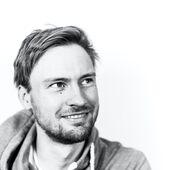
Claudius Gräbner-Radkowitsch
Junior Professor of Pluralist Economics, Europa-Universität Flensburg
Less ![]()
- Market Data





















